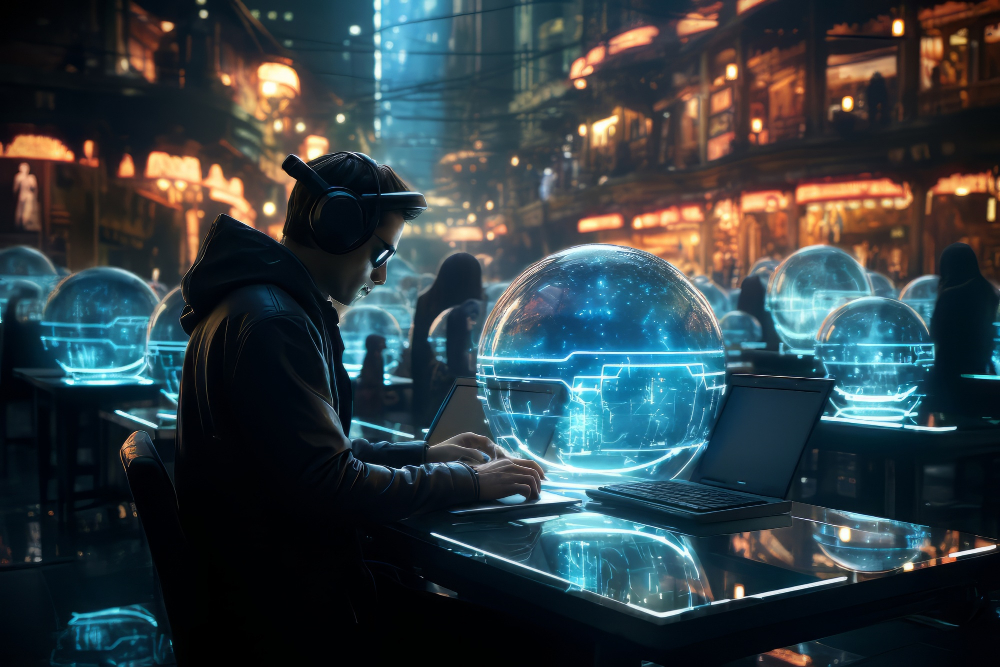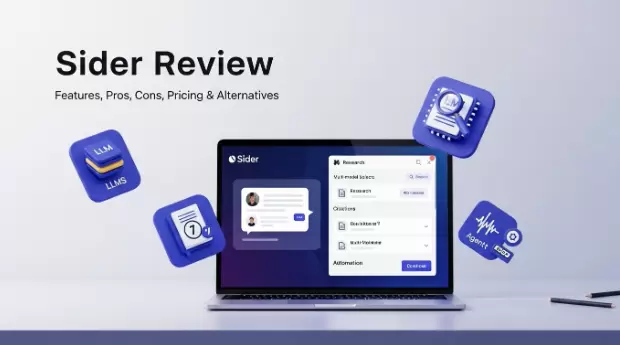Generative AI, AI-powered, AI solutions…
For the past couple of years, phrases like these have become so common that you would have to be living under a rock if you haven’t heard any of them.
AI has truly changed our approach to so many things, starting from the smallest tasks like solving a math problem to things like going through an enormous amount of data or automation.
But, in this article, I want to shift your attention to the ways the emergence of AI has redefined the marketing landscape and the way it made every marketing specialist rethink their strategies and campaigns.
With its ability to analyze huge amounts of data, predict consumer behavior, and personalize experiences, AI has not only helped transform marketing strategies but has also opened up new paths for creativity and innovation.
So, let's dive into seven impressive ways AI has revolutionized the marketing world, allowing businesses to grow and succeed no matter their size.
1. Hyper-Personalized Campaigns
The days of generic mass marketing are long gone. AI algorithms are now capable of going through consumer data with great precision, which ends up allowing marketers to create hyper-personalized campaigns tailored to individual preferences, behaviors, and interests.
By leveraging machine learning techniques, AI analyzes datasets to understand consumer demographics, purchasing patterns, and online interactions. And then, with this knowledge already available at hand, marketers can deliver targeted messages across different channels, from email and social media to mobile apps, websites and custom landing pages, ensuring that each customer feels understood and valued.
2. Predictive Analytics
Predicting the future might seem like an impossible task, but AI makes it achievable, at least when it comes to marketing. Through predictive analytics, AI algorithms can forecast future trends, identify potential leads, and anticipate customer needs and wants with remarkable accuracy.
AI technology can predict which products a customer is likely to purchase, when they're most likely to decide to make a purchase, and how much they're willing to spend on it, by simply analyzing already existing data and even real-time interactions. These predictions help marketers optimize their campaigns based on the analyzed data, allocate resources more effectively, and stay one step ahead of the competition.
Moreover, by using such technology businesses have become capable of predicting what the customer might need before they even come to the realization themselves. This is also, usually, the reason behind us seeing sponsored ads on social media of things that we only thought about buying. Believe it or not, your phone can’t read your mind, but the algorithm can read your behavior and intentions and make assumptions based on it. And these assumptions are on point most of the time.
3. Dynamic Content Generation
Content is what rules in the digital age, but creating engaging, relevant content can be a very challenging task.
But this is where AI-powered content generation tools come in!
These tools can help automate the process of creating content and customizing it based on user preferences and market trends at the moment. Whether it's generating product descriptions, writing blog posts, or creating personalized email newsletters, AI algorithms can mimic human creativity and language skills, and create content that resonates perfectly with the brand’s target audiences. Sounds amazing, right?
By streamlining content creation workflows, AI enhances workflow automation frees up marketers to focus on strategy, creativity, and building meaningful connections with customers. So let your creative juices flow and leave the manual, boring but time-consuming tasks to AI.
So, how exactly can you use AI in content creation?
- Text Generation
Using an AI writing tool or AI models like GPT (Generative Pre-trained Transformer) can help you generate human-like text based on the prompts you provide. This can be helpful in generating blog posts as well as articles, social media posts, product descriptions, and so much more. With tools like Instagram chat becoming increasingly popular, writers can also leverage AI to tailor content for this platform specifically, ensuring maximum engagement and relevance. Moreover, these models give you ideas for posts, captions and even hashtags you can use and even provide content plans for months with all the details one might need. The key is to give clear instructions on what you have and what you want to achieve.
- Content Curation
Going through an ocean of content trying to research a topic can take so much time. But with the help of AI models, this time is cut in half (if not more). AI algorithms can go through vast amounts of content to curate relevant information for a particular topic you need. This greatly helps writers to streamline their research processes. They can simply select a topic, use a rank tracker to find out what keywords have good metrics and perform well for their competitors, and then again use AI to create content accordingly.
- Translations
Going global has become a goal for so many businesses and to achieve that effectively they often need to translate their content into the language of their target audience. It’s extremely time-consuming and requires manpower, but thanks to AI tools you can translate content from one language to another quickly and accurately, enabling content creators to instantly reach wider audiences.
- Image and Video Editing
Tired of spending time looking for the perfect picture for your social media or editing videos? Well, your struggles can easily come to an end. There are so many AI tools that can not only edit your pictures but also generate the visuals that you need and even add subtitles to your videos and create animations, isn’t it groundbreaking? You can ask an AI to give you a picture of a fish eating an apple and it will give you just that in seconds! Many even use it to help them come up with a logo design or create visuals for their newsletters and brochures.
These are only a few of the hundreds of ways that AI can be used when it comes to content creation. Truth is, people find new ways to use it on a daily basis, so go have a field trip with different AI tools to figure out what are the ways they can benefit you the most. You can also follow the top marketing influencers to learn more about the trends an new findings in the industry.
4. Customer Insights in Real Time
Understanding customer behavior live and in real-time can be crucial for effective marketing campaigns.
AI-driven analytics platforms and tools help collect and analyze data immediately, which provides marketers with valuable customer insights such as their preferences, sentiments, and interactions. By monitoring social media conversations, website visits, and purchase history, AI can detect emerging trends, identify potential issues, and uncover hidden opportunities.
Why does this matter you might ask. Well, the simple answer is it helps marketing specialists adapt their strategies on the fly and deliver timely, relevant content that drives conversions. So, basically, just gather the insight provided by AI tools, hold a quick business meeting to decide the way forward and adjust your strategies as soon as possible to not miss the chance of seizing opportunities in the market.
5. Automated Advertising
Managing ad campaigns across multiple channels can be a difficult and time-consuming task. AI-powered advertising platforms simplify this process by automating some of the processes including ad placement, optimization, and even targeting.
These platforms can identify the most effective ad placements, optimize strategies, and target the right audience segments, the ones for which the ad will work the best by using machine learning algorithms. Whether it's display ads, search ads, or social media ones, AI ensures that every penny spent on advertising is spent wisely, and ends up helping maximize ROI and drive business growth.
6. Chatbots and Virtual Assistants
In the age of instant gratification, consumers expect round-the-clock support and instant answers to their queries and requests no matter what. According to Talkie AI, AI-powered chatbots and virtual assistants are the ones that fulfill this need by providing personalized assistance and resolving customer issues in real-time.
Whether it's answering frequently asked questions, guiding users through the sales process, or providing product recommendations, chatbots leverage natural language processing (NLP) algorithms to simulate human-like conversations. They can even help out when it comes to the onboarding processes for both new employees and customers.
By automating routine tasks and providing instant support, chatbots enhance the customer experience, increase engagement, and drive conversions. Most importantly, they lighten the weight on a human assistant’s shoulders. However, this is not to say that you should only invest in a virtual assistant. Let’s not forget that there might be some queries with which only a human, a real, breathing, walking, talking human can help. So don’t forget to include a phone number and email address to make sure your customers have a way of discussing their issues with your support team.
7. Enhanced Customer Segmentation
Effective targeting is the foundation of any successful marketing campaign.
With AI, marketers are able to segment their customer base with unique precision, allowing them to tailor their messaging and offers to specific audience segments every time. By analyzing demographic data, purchasing behavior, and psychographic traits, AI algorithms can identify distinct customer segments and predict their responses to different marketing stimuli.
This enhanced level of segmentation enables marketers to brainstorm highly targeted campaigns that resonate with specific audience groups, driving engagement and loyalty.
The best way to appeal to a customer is by showing that you care about them, you notice their pain point and you can offer a solution to that exact pain point. This is why segmentation and targeting are so essential, because without them whether you use AI or not, won’t matter as your whole campaign will just become a waste of time and resources.
Wrapping it Up
AI has revolutionized the marketing industry and the way we used to live in ways that were once only unimaginable. But in doing so it empowered marketers to connect with consumers in more meaningful, personalized, and impactful ways. From hyper-personalized campaigns and predictive analytics to automated advertising and chatbots, AI is refining the world of marketing, and allowing businesses to unlock new opportunities for growth and success.
As technology continues to evolve every single minute, the possibilities for AI-driven marketing are limitless, setting a foundation for a future where creativity, data analytics, and technology merge and co-exist to create truly unforgettable customer experiences.


 Table of Content
Table of Content










